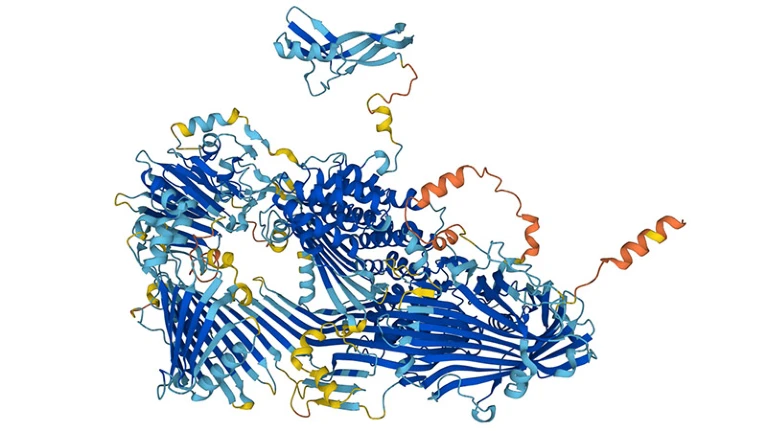In recent research, the artificial intelligence (AI) protein-structure prediction tool AlphaFold has emerged as a game-changer. It is showing its unprecedented potential in identifying thousands of potential new psychedelic molecules.
This groundbreaking discovery not only challenges prior skepticism but also underscores the transformative role of AI in revolutionizing drug discovery.
Developed by DeepMind in London, AlphaFold has become a cornerstone in biology. It achieves this status by providing structure predictions for nearly every known protein. Unlike traditional experimental methods such as X-ray crystallography, which can take months or years, AlphaFold’s predictions are accessible with a simple click. Additionally, it proves to be just as effective in the intricate process of drug discovery.
Despite its promising capabilities, AlphaFold has faced skepticism, notably from researchers like Brian Shoichet at the University of California, San Francisco. Concerns about its efficacy compared to experimental methods, particularly in protein–ligand docking, have been raised in numerous studies. However, recent insights suggest a shift in perception.
To address skepticism, researchers, led by Shoichet and Bryan Roth from the University of North Carolina at Chapel Hill, conducted a comprehensive comparison. The focus was on AlphaFold’s predictions, comparing them with experimental structures for neuropsychiatric-related proteins. Surprisingly, while the predicted and experimental structures identified different drug candidates, the ‘hit rates’—indicating the proportion of flagged compounds effectively altering protein activity—were nearly identical, highlighting AlphaFold’s potential in drug discovery.
Furthermore, exploring the potential of AlphaFold, the study focused on the serotonin receptor. This is a pivotal player in neuropsychiatric conditions. AlphaFold’s predictions successfully identified drugs activating this receptor, opening new avenues for developing non-hallucinogenic compounds as potential antidepressants. This discovery introduces innovative prospects for mental health treatment.
Read more: ElevenLabs achieves unicorn status after raising $80 million
Read more: Saudi Arabia’s tech spotlight: Neom shines at Davos
AlphaFold’s future in drug discovery
The study’s findings instill confidence in AlphaFold’s predictive capabilities, presenting it as a potential game-changer in drug discovery. Researchers envision its role as a time-saving and resource-efficient tool, capable of jump-starting projects and accelerating drug development. However, it may not be a universal solution.
DeepMind’s spin-off, Isomorphic Labs, recently sealed substantial deals with pharmaceutical giants Novartis (NYSE: NVS) and Eli Lilly (NYSE: LLY) (CBEO CA: LLY-N), underscoring the industry’s growing interest in incorporating AI—particularly AlphaFold—into drug discovery processes. This strategic move solidifies AI’s position as a pivotal force in shaping the future of pharmaceutical research.
Leveraging AlphaFold to identify potential psychedelic molecules also marks a significant milestone in the integration of AI into drug discovery. Despite lingering challenges and skepticism, that AlphaFold showed ability to complement experimental methods and expedite drug development cannot be overlooked. As the industry continues to explore the vast potential of AI in drug discovery, AlphaFold emerges as a promising tool with the capacity to redefine the landscape of pharmaceutical research.
zartasha@mugglehead.com














Jeep Diva
February 26, 2024 at 11:24 pm
Absolutely fascinating to see the impact of AlphaFold on drug discovery! As a reader, I’m excited to see how this technology can revolutionize the way we develop new medicines. The potential for more accurate predictions and faster development times is incredible. Can’t wait to see the results of future research in this area!